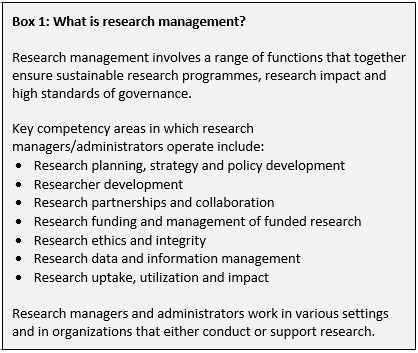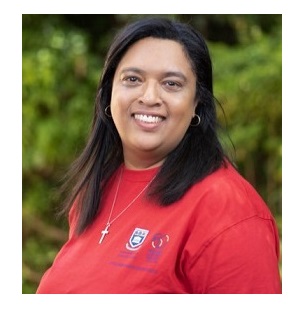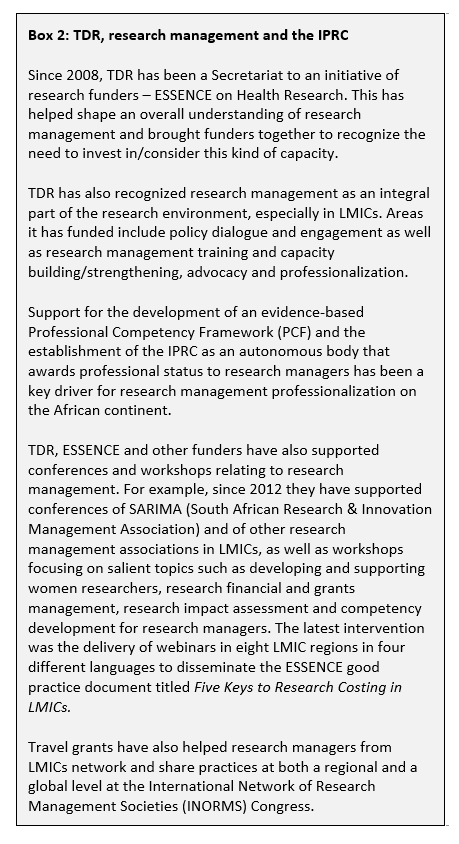
Research management (see Box 1) plays a crucial role in any research programme, yet in Africa and other low- and middle-income countries (LMICs) it remains in its infancy.
One initiative which TDR helped to establish, The International Professional Recognition Council (IPRC), is currently helping to professionalize research management in the continent. (See Box 2 for more information on TDR and its relationship with research management and the IPRC.)
Professor José Frantz is a senior research management professional who was recently accredited by the IPRC and is listed as one of its members. Currently she is the Deputy Vice-Chancellor for Research and Innovation at the University of the Western Cape (UWC) in South Africa, where, on top of her academic activities of teaching, learning and research, she is also responsible for the institution’s strategic vision of research and innovation.
 Professor Frantz is a remarkable woman with a strong drive and determination to improve Africa’s capacity for research. In 2016, she was honoured as the National Research Foundation’s Champion for Research Capacity Development and Transformation at South African Higher Education Institutions and in 2017 she was recognized by the South African Association of Health Educationalists (SAAHE) as Distinguished Health Educator of the Year. As well as authoring over 100 peer-reviewed publications, book chapters and conference presentations in health professions education (HPE) and physiotherapy as a profession, she has supervised over 47 masters and 15 PhD students.
Professor Frantz is a remarkable woman with a strong drive and determination to improve Africa’s capacity for research. In 2016, she was honoured as the National Research Foundation’s Champion for Research Capacity Development and Transformation at South African Higher Education Institutions and in 2017 she was recognized by the South African Association of Health Educationalists (SAAHE) as Distinguished Health Educator of the Year. As well as authoring over 100 peer-reviewed publications, book chapters and conference presentations in health professions education (HPE) and physiotherapy as a profession, she has supervised over 47 masters and 15 PhD students.
Professor Frantz sees her own role as capacitating others and creating more awareness around the role of research administration. Her own realization of the importance of research administration came when she was Deputy Dean of Research. “Our institution was moving to a research-led university, and it became obvious that administrators were being left behind in [both] their thinking and role,” she said.
 Asked why research management is particularly important for countries such as South Africa she referred to the COVID-19 pandemic. “As was clear during the pandemic, South Africa aligns itself with using research evidence to guide policy” she said, adding “research administration needs to step in being able to share accurate data.”
Asked why research management is particularly important for countries such as South Africa she referred to the COVID-19 pandemic. “As was clear during the pandemic, South Africa aligns itself with using research evidence to guide policy” she said, adding “research administration needs to step in being able to share accurate data.”
As South Africa moves towards improving the role that higher education institutions play in driving agendas such as the 2030 Agenda for Sustainable Development and Africa’s Agenda 2063, it’s important for research administrators to understand the valuable contribution they can make.
According to Professor Frantz, it’s not just research administrators that need to know their worth. Researchers also need to have a better understanding of research management and administration and thus get to appreciate their value. The main challenge, however, lies higher up in higher education institutions: “the leadership of

